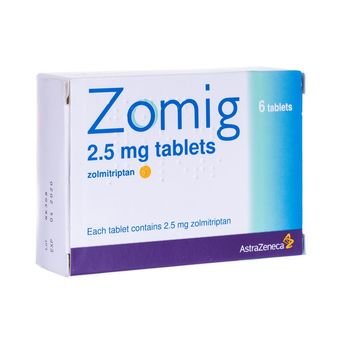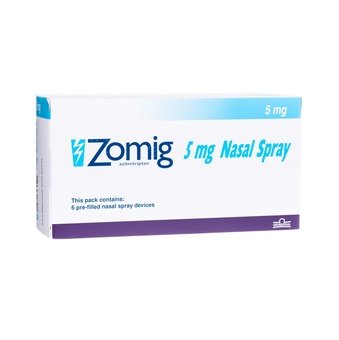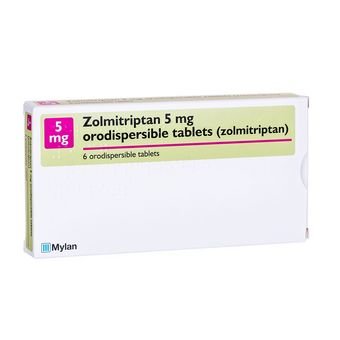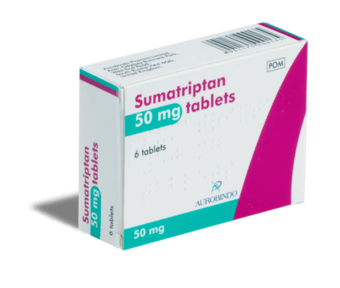What Is A Migraine? More Than Just A Headache
In this article we outline everything you need to know about migraines. We talk about the different types of symptoms and how to prevent them from happening.
In this week’s edition of my Cloud Pharmacy article. I take a look at the weird and wonderful world of migraines. For those of you that are unfortunate enough to experience them, you have my sympathy as I know how awful these can be. However, if you are lucky enough to have avoided such an experience, then allow me to shine a little light (but not too bright) on the condition. We will look at what the condition is, how it is managed, the different types of migraines, and how we can help you to overcome your migraines in future.
Migraines are normally described as a moderate to severe headache felt as a throbbing pain on one side of the head. They are a very common condition, normally in early adulthood with 1 in 5 women and 1 in 15 men experiencing them. The exact cause of migraines are unknown but there are some known triggers that can induce a migraine attack such as stress, tiredness, periods, and the weather. There are several different types of migraine:
Migraine with aura - This is where you have a brief warning that an attack is coming, normally in the form of flashing lights, pins and needles, and feeling dizzy. Silent migraine - where all the other symptoms of a migraine occur without a headache Migraine without aura - There are no warning signs of an attack coming, this is the most common form of migraine.
What Are The Symptoms of A Migraine?
As mentioned previously, the main symptom of a migraine is an intense headache on the one side of the head. It can stop you from carrying out your day to day activities and normally gets worse when you move. Other common symptoms of migraines include feeling and being sick, sweating, poor concentration, and a sensitivity to light and sound. These symptoms tend to last from a few hours up to a few days and normally will leave you fatigued for a few days after that. People can go a few months between migraine attacks and for others it can be years.
However, if you are experiencing paralysis in one arm or side of the face, slurred speech, or a sudden headache with severe pain then you must call 999 immediately as it could be signs of a stroke or meningitis.
How Do I Stop A Migraine Attack?
We can stop migraine attacks by using painkillers, such as paracetamol and ibuprofen. Tablets that can be dissolved in water are a good alternative as they are absorbed into the body at a faster rate. For those of you that are under 16 it is very important not to use aspirin as this can cause some serious side effects. For people that are regularly prescribed medicines from a GP it is important you speak to your local pharmacist before buying any over the counter medicines, just to make sure what you are buying does not interact with any medicines you currently take. If painkillers are not working for you, you may need a specific type of painkiller class called triptans, a class of drug that works by reversing the onset of a migraine. It causes blood vessels around the brain to contract, reversing the effects of the migraine. Tightness, flushing, and warm sensations are all side effects of triptans. They are available as tablets, nasal sprays, and injections. To help combat the nausea the anti-emetic drug class will help, similarly to the painkillers you must take at the onset of the attack in order for it to work best. Combination tablets such as Migraleve are available to buy in your local pharmacy - this has a pain killer as well as your antiemetic to help combat the attack. When you buy sumatriptan over the counter, you will have needed to be previously diagnosed with a migraine before you can purchase it - however with Migraleve you do not.
How Can I Prevent Migraines From Happening?
Recognising things that can trigger an attack, and then avoiding them, is one of the best ways of preventing migraines. Keeping a migraine diary can help to identify possible triggers and monitor how well your treatment is working for you. You should try and note the symptoms you feel, time it happened, if you had any warning, and what medicines you used to fight the attack. Topiramate, typically an anti-epileptic medication, is also widely used for preventative treatments for migraines as well as propranolol which usually treats high blood pressure, but both of these medicines are obtained through a prescription so you would need to discuss this with a GP.
At Cloud Pharmacy, we are on call to provide you with all of our migraine treatment options from sumatriptan to painkillers to help for an attack. Why not get in contact with one of our pharmacists to discuss any other ailments you may have. Expert advice and discreet medicines sent directly to you, everything you need to help get your life back on track - without the headache!





















